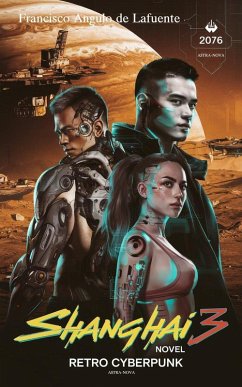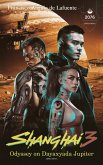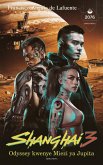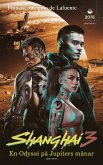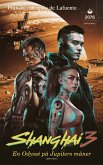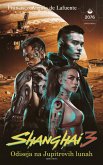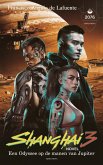The protagonist, a middle-aged spaceship mechanic envisioned as Harrison Marcus Carter, becomes our guide through this complex and stratified world. His struggle to understand his own identity and reality reflects the fundamental questions the novel poses about the nature of consciousness and the authenticity of our experiences.
Angulo de Lafuente skillfully weaves a plot that combines elements of thriller, hard science fiction, and social critique. The introduction of Olivia Dunne as an enigmatic character adds layers of intrigue and romance to the narrative, while revelations about the true nature of the colony and its inhabitants keep the reader in a constant state of anticipation.
What sets "Shanghai 3" apart in the cyberpunk genre is its nuanced exploration of themes such as labor exploitation, memory manipulation, and resistance against oppressive systems. The author doesn't settle for presenting a simply dystopian future but invites us to reflect on the ethical and philosophical complexities of a world where reality can be programmed and identity becomes a fluid concept.
Angulo de Lafuente's prose is agile and evocative, vividly painting the alien landscapes of Europa and the claustrophobic atmosphere of Shanghai 3. His ability to balance thrilling action with moments of deep introspection keeps the narrative at a captivating pace.
"Shanghai 3" is not just a science fiction novel; it is a meditation on the human condition in an era of unprecedented technological advancements. It raises uncomfortable questions about the cost of progress and the nature of freedom in a world increasingly controlled by corporate entities and artificial intelligences.
For fans of cyberpunk and science fiction in general, "Shanghai 3" offers a rich and satisfying reading experience. For those new to the genre, it serves as a fascinating introduction to the themes and aesthetics that define this literary current.
In summary, "Shanghai 3" is a valuable addition to the cyberpunk canon, a novel that not only entertains but also challenges and inspires. Francisco Angulo de Lafuente establishes himself with this work as a promising voice in the landscape of contemporary science fiction.
Dieser Download kann aus rechtlichen Gründen nur mit Rechnungsadresse in A, B, CY, CZ, D, DK, EW, E, FIN, F, GR, H, IRL, I, LT, L, LR, M, NL, PL, P, R, S, SLO, SK ausgeliefert werden.

